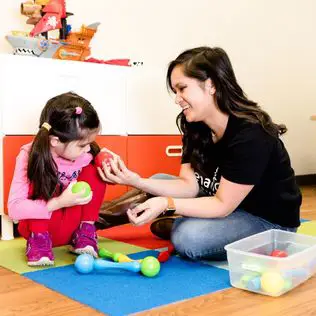
Early Intervention
- Home
- ABA Intervention
Early Intervention
Early Intervention - ABA Therapy, Occupational Therapy, Speech Therapy

At YOU CAN, we emphasize the importance of Early Intervention in Applied Behavior Analysis (ABA) therapy for children with developmental delays or Autism Spectrum Disorder (ASD). Research has shown that starting ABA therapy at an early age leads to the best outcomes in terms of communication, social skills, behavior management, and overall developmental progress. Our Early Intervention Program is designed to target key developmental areas during critical learning periods, helping children reach their full potential.
Why Early Intervention Matters in ABA Therapy
We provide individualized, evidence-based occupational therapy in Coimbatore programs that focus on the following key areas:
Fine Motor Skills
Helping children strengthen their hand-eye coordination, finger dexterity, and ability to perform tasks such as writing, cutting, and using utensils.
Skill Development
By starting early, children can develop foundational skills in areas such as communication, social interaction, play, and self-regulation. These skills are essential for academic success and overall independence.
Behavioral Improvements
Early intervention helps address challenging behaviors (e.g., tantrums, aggression) and encourages positive behaviors like following instructions, engaging with others, managing emotions, and expressing their needs.
Better Long-Term Outcomes
Early, intensive ABA therapy has been shown to help children catch up to their peers in many cases, resulting in reduced need for support later in life. The earlier the intervention, the greater the potential for success.
What Does Early Intervention in ABA Therapy Include?
Comprehensive Assessment
The process begins with a Functional Behavior Assessment (FBA) to understand the child’s current behavior, communication abilities, and developmental stage. This helps us design an individualized intervention plan based on specific needs.
An individualized therapy plan (ITP) is developed to target developmental goals that are crucial for the child’s growth. This plan includes specific objectives related to:
- Communication (verbal and non-verbal)
- Social skills (sharing, turn-taking, initiating interactions)
- Self-help skills (feeding, dressing, toileting)
- Play skills (engaging in imaginative play, cooperative play)
- Behavior management (reducing negative behaviors, reinforcing positive behaviors)
One-on-One ABA Therapy
- Children participate in one-on-one therapy with a trained ABA therapist, using discrete trial training (DTT), natural environment teaching (NET), and other ABA methods to teach targeted skills in a structured, supportive environment.
- Parents play an essential role in the success of early intervention. We provide parents with the training, strategies, and tools they need to reinforce learning at home, creating consistency between therapy and daily life.
Data-Driven Progress Monitoring
- Progress is closely monitored through consistent data collection, ensuring that interventions are effective and that goals are being met. Adjustments are made as needed to ensure the child is progressing in all areas.
Key Benefits of Early ABA Intervention
Improved Communication
Early intervention focuses heavily on language development, both verbal and non-verbal, helping children express their needs and understand others more effectively.
Enhanced Social Skills
Children learn how to interact with peers and adults, develop friendships, and respond appropriately in social settings.
Behavioral Management:
Children learn to manage challenging behaviors, reducing tantrums and aggression, and improving their ability to follow instructions and engage in positive behaviors.
Cognitive Development
ABA helps children develop problem-solving skills, memory, attention, and other cognitive abilities necessary for success in school and daily life.
Increased Independence
Focus on teaching self-care skills, such as dressing, eating, and toileting, fosters independence and prepares children for everyday tasks.
Who Can Benefit from Early ABA Intervention?

- Children with Developmental Disabilities, Autism Spectrum Disorder (ASD), Speech Delay, Slow Learners
- Children with developmental delays
- Families seeking a structured, data-driven approach to address developmental challenges
